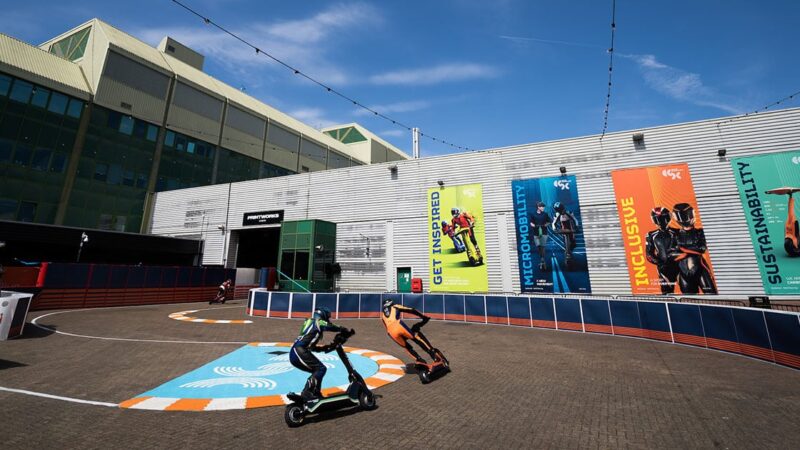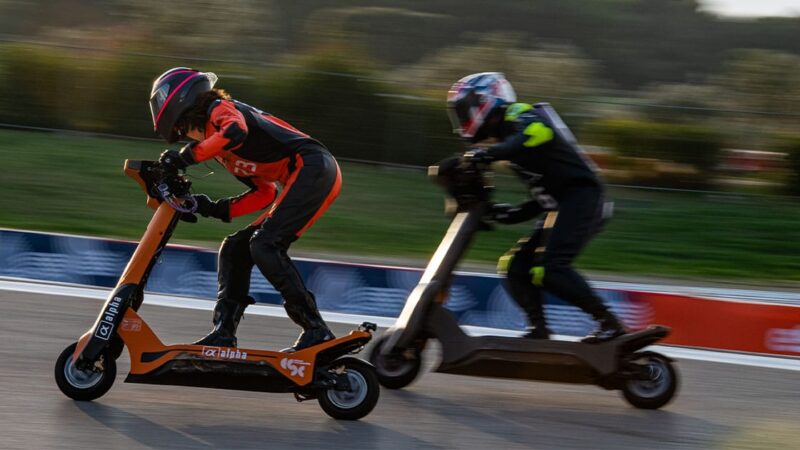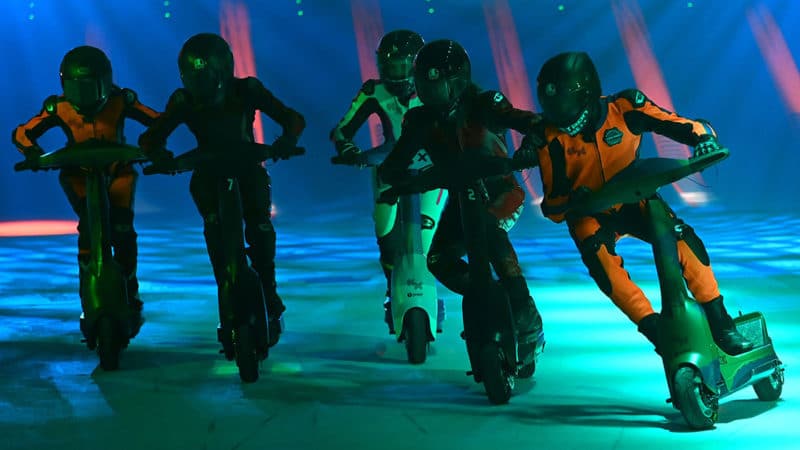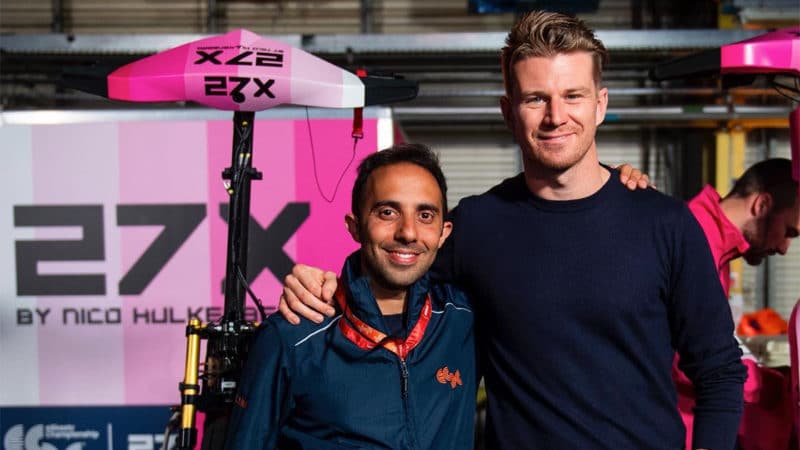On the tiny 11in wheels of the twin-motor S1X scooter carry the hopes of more sustainable motor sport; a genuinely affordable route to professional racing; better protection for all scooter riders; and technology that could make electric scooters part of everyday life without filling A&E wards with mown-down pedestrians.
“This is redefining the future of racing,” says Hrag Sarkissian, a tech entrepreneur who co-founded the series with Formula E champion Lucas Di Grassi, Le Mans-winner Alex Wurz, and former A1GP driver Khalil Beschir.
“Micro mobility is gripping the whole sector and electric scooters are definitely the most fun to ride. This is why we want to race electric scooters because it’s so relatable to this younger generation, and what better way to accelerate development and than racing?”
While Formula 1 succeeds in bringing younger fans in to motor sport, without a multi-millionaire backer youthful enthusiasts can only dream of joining their heroes on track.
The eSkootr series promises a route to the top for any young rider who shows promise, with plans in the pipeline for a junior version of the S1X which, from the age of seven, can be ridden and raced at local kart circuits, as well as in regional and national championships.
Linked to your personal profile on an app, the idea is to start off with arrive and ride sessions on a reduced-power machine. As you gain experience, logged on your profile, additional power is unlocked, and as you progress up the ladder, professional teams can see your data, identifying talent from anywhere in the world.
“We want to build a sustainable sport from the beginning,” says Beschir. “The teams have to pay riders and there will also be prize money at the end of each season.”

Tight and twisty track not exactly conducive to great racing – but it’s work in progress
eSkootr
Each team has bought into a franchise, with owners that include the heavy-weight boxing champion Anthony Joshua, Aston Martin F1 reserve deriver Nico Hülkenberg and Carlin, which competes in multiple single-seater categories.





